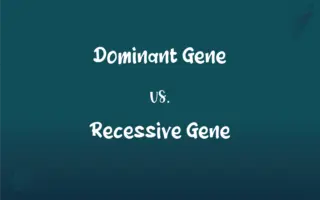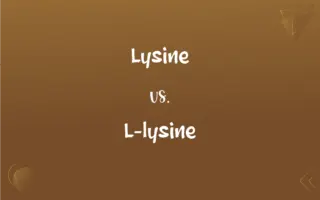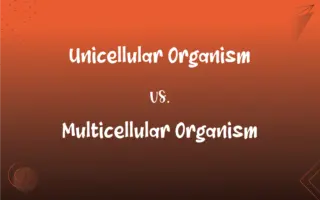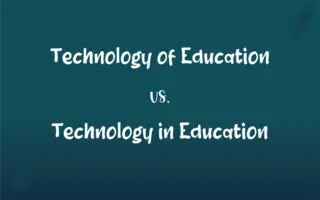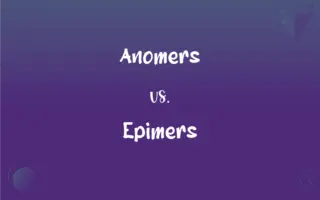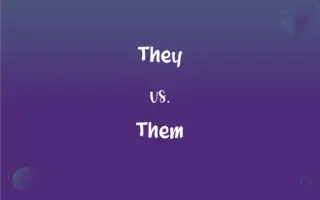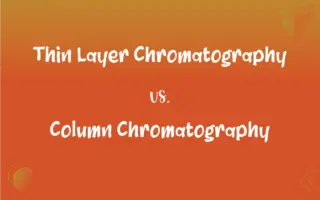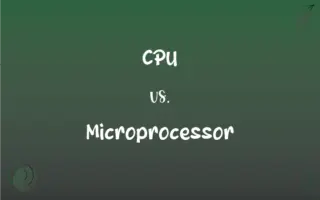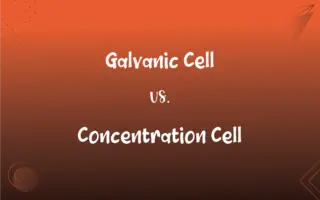Smart vs. Intelligent: What's the Difference?
Edited by Aimie Carlson || By Harlon Moss || Updated on October 3, 2023
Smart typically refers to a person's quick-wittedness or cleverness, while intelligent implies a broader capacity for learning, reasoning, and problem-solving.

Key Differences
Smart individuals possess a quick grasp of concepts and are adept at finding practical solutions. For instance, a smart student might effortlessly solve a math problem. On the other hand, intelligence encompasses a wider spectrum of cognitive abilities. An intelligent person not only solves the math problem but also comprehends its underlying principles, demonstrating adaptability across various subjects.
Smartness often relates to street smarts, where individuals exhibit shrewdness in everyday situations. They can navigate social interactions effectively and make wise decisions. Intelligence, however, extends beyond interpersonal skills, focusing on intellectual pursuits such as analyzing complex data or understanding abstract concepts.
Being smart may manifest in practical skills like negotiation or resourcefulness. An intelligent individual may excel in academics, showcasing their capacity for critical thinking and creative problem-solving. The key difference is that smartness emphasizes quick thinking, while intelligence emphasizes a broader mental capacity.
In summary, smartness is about quick, practical thinking, while intelligence encompasses a broader range of cognitive abilities, including problem-solving, reasoning, and academic aptitude.
Comparison Chart
Speed of thought
Quick-witted
Analytical
ADVERTISEMENT
Problem-solving
Practical solutions
Complex reasoning
Social acumen
Street smarts
Interpersonal skills
Adaptability
Resourcefulness
Versatility
Academic prowess
Varies
Often strong
Smart and Intelligent Definitions
Smart
In technology, smart refers to devices or systems with automated features.
This smart thermostat adjusts the temperature based on your preferences.
ADVERTISEMENT
Intelligent
Intelligence is the capacity for learning and reasoning.
His intelligence shines through in his problem-solving skills.
Smart
Being smart means you're quick-witted in conversations.
His smart responses always make people laugh.
Intelligent
Intelligence includes the ability to adapt to new situations.
His intelligence allows him to thrive in various roles.
Smart
Smart individuals can find clever solutions to problems.
She devised a smart strategy to increase sales.
Intelligent
Intelligence involves a deep comprehension of complex ideas.
Her intelligence enables her to grasp intricate scientific concepts.
Smart
Smart can also describe a well-dressed and stylish appearance.
She looked incredibly smart in her new outfit.
Intelligent
Intelligent individuals often display creativity in problem-solving.
His intelligence shines in his innovative approach to design.
Smart
Smart can mean well-groomed or well-kept.
He always appears smart and put-together.
Intelligent
An intelligent person often excels academically.
She's so intelligent; she easily aced the math exam.
Intelligent
Having intelligence
Is there intelligent life elsewhere in the galaxy?.
Intelligent
Having a high degree of intelligence; mentally acute
An intelligent student.
Intelligent
Showing sound judgment and rationality
An intelligent decision.
An intelligent solution to the problem.
Intelligent
Appealing to the intellect; intellectual
A film with witty and intelligent dialogue.
Intelligent
Of high or especially quick cognitive capacity, bright.
Intelligent
Cognizant; aware; communicative.
Intelligent of seasons.
Which are to France the spies and speculationsIntelligent of our state.
Intelligent
Having the capacity for thought and reason especially to a high degree;
Is there intelligent life in the universe?
An intelligent question
Intelligent
Possessing sound knowledge;
Well-informed readers
FAQs
What does "smart" mean?
Smart generally refers to quick thinking or cleverness.
Does "intelligent" relate to academic success?
Yes, an intelligent person often excels academically.
Is "smart" related to problem-solving?
Yes, smart individuals often find practical solutions to problems.
Does "smart" apply to technology?
Yes, it can describe automated devices or systems.
Is adaptability part of intelligence?
Yes, intelligence includes the ability to adapt to new situations.
Can "smart" describe a well-dressed person?
Yes, it can also mean well-dressed or stylish.
Does "intelligent" imply understanding complex ideas?
Yes, it involves a deep comprehension of intricate concepts.
How do I determine if someone is smart or intelligent?
Assess their quick thinking for smartness and their cognitive abilities and problem-solving skills for intelligence.
Can "smart" refer to a tidy appearance?
Yes, it can describe someone who looks neat and well-groomed.
Can "smart" refer to someone who is good at social interactions?
Yes, it can describe someone with street smarts who excels in social situations.
Is "smart" the same as being wise?
Not necessarily; wisdom includes experience and judgment, whereas smartness focuses on quick thinking.
Does "smart" imply adaptability to various situations?
Yes, smartness often involves being resourceful and adaptable.
Can someone be both extremely smart and highly intelligent?
Yes, some individuals possess both quick thinking and strong cognitive abilities, making them exceptionally smart and intelligent.
What is the definition of "intelligent"?
Intelligence involves cognitive abilities, including learning and reasoning.
Can a smart person also be intelligent?
Yes, smartness and intelligence can coexist in an individual.
Is intelligence solely related to academics?
No, intelligence extends beyond academics to problem-solving and reasoning in various domains.
Can someone be intelligent but lack creativity?
Yes, while intelligence can include creativity, it's not a requirement.
Is intelligence fixed, or can it be developed?
Intelligence can be developed and improved through learning and experience.
Are there different types of intelligence?
Yes, theories like Gardner's Multiple Intelligences propose various types, including emotional intelligence and logical-mathematical intelligence.
Can a smart person become intelligent with education?
Education can enhance both smartness and intelligence, depending on the individual's efforts and opportunities.
Are there any downsides to being overly smart or intelligent?
Being overly smart or intelligent can lead to social isolation or difficulty relating to others.
Can smartness and intelligence change over time?
Yes, both can develop and change with experience, education, and personal growth.
Can "intelligent" be associated with creativity?
Yes, intelligent individuals often display creativity in problem-solving.
Are smart people good at quick decision-making?
Yes, smart individuals often make quick and effective decisions.
Can an intelligent person struggle in social situations?
Yes, intelligence doesn't guarantee social prowess.
Does "intelligent" imply a high IQ?
It often correlates with a high IQ, but intelligence encompasses broader cognitive abilities.
Do smartness and intelligence have a genetic component?
There is evidence of genetic factors influencing both traits, but environmental factors also play a significant role.
Is it better to be smart or intelligent?
It depends on the context and your goals; both qualities have their advantages.
Can someone be intelligent but lack common sense?
Yes, intelligence doesn't always translate to practical wisdom or common sense.
Can intelligence be measured accurately?
Intelligence tests like IQ tests provide a measure of cognitive abilities, but they don't capture the full spectrum of human intelligence.
About Author
Written by
Harlon MossHarlon is a seasoned quality moderator and accomplished content writer for Difference Wiki. An alumnus of the prestigious University of California, he earned his degree in Computer Science. Leveraging his academic background, Harlon brings a meticulous and informed perspective to his work, ensuring content accuracy and excellence.
Edited by
Aimie CarlsonAimie Carlson, holding a master's degree in English literature, is a fervent English language enthusiast. She lends her writing talents to Difference Wiki, a prominent website that specializes in comparisons, offering readers insightful analyses that both captivate and inform.
